Medical Assistant Programs in North Carolina
As a graduate of one of the Medical Assistant programs in North Carolina, you’ll have a variety of practice settings to choose from. Demand for MAs with degrees is high in hospitals, physician private practices, long-term care facilities, and outpatient clinics across the Tar Heel State, and employment opportunities are expected to grow by more than 19 percent in the next 10 years. Medical assistants with degrees make decent wages, too—$38,230 annually on average. As a medical assistant, you’ll also have the chance to specialize in a variety of fields, such as primary care, orthopedics, or optometry. Medical assisting is a great occupation! Learn more about it with this guide below to the 19 best Medical Assistant programs in North Carolina.
Following are the 19 Best Medical Assistant Programs in North Carolina for 2025
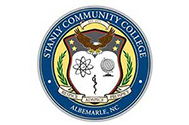 Locations: Locust If you aspire to become a medical assistant in the Tar Heel State, then to complete your education, you can consider either one of the four programs offered by Stanly Community College. If you are seeking comprehensive training in both clerical and clinical skills, then you can either opt for the diploma or associate degree. While the diploma is a 48-credit curriculum and takes 12 months to complete, the associate requires completing 68 credits over a span of two years. Alternatively, if you are interested in learning only the front office functions, you can instead enroll for the short certificate program of 8 months that covers only administrative courses. Also, if you are currently in the junior or senior year of high school, you can concurrently pursue this certificate by opting for the Career & College Promise (CCP) dual enrollment option. This way, you save a considerable amount on the tuition cost and can even graduate much sooner. The college also offers an 18-credit certificate in medical billing and coding for those interested in taking up work as a medical coding assistant. |
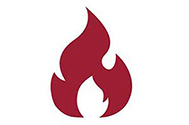 Locations: Hamlet A medical assistant plays a vital role in healthcare, helping doctors run their medical offices smoothly. When you graduate from Richmond Community College’s 70-credit associate degree, you acquire the professional skills and knowledge required to efficiently perform both clerical and clinical functions. On the other hand, the certificate is a short course of 18 credits and mainly comprises administrative courses such as administrative office procedures, medical transcription, insurance & coding, medical law & ethics, and medical terminology. All the courses in the certificate form a part of the associate degree coursework, so after completing the certificate, should you plan to progress towards the associate degree, you will be able to transfer all the 18 credits towards it. |
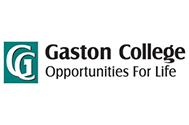 Locations: Dallas Gaston is a medical assistant college in North Carolina that trains you to become a multi-skilled healthcare professional through its diploma and associate degree. The diploma is 48-credit coursework that includes courses in administrative, clinical and lab functions and takes one year to complete. On the other hand, if you desire a well-rounded education then you are encouraged to continue your studies to earn an associate degree. This requires completing 20 credits in psychology, humanities, and biology, in addition to the diploma coursework. As an associate degree graduate, you not only develop enhanced communication and critical thinking skills, but you can also use this credential as a stepping-stone for future career advancement. |
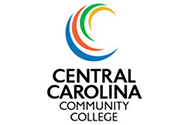 Locations: Lillington & Pittsboro To succeed as a medical assistant, you must foremost be a multi-tasker, possess an eye for detail and have a keen desire to help people. Besides these vital traits if you add a medical assisting degree from Central Carolina Community College, you can gain the professional expertise required to efficiently fulfill front and back-office functions at a physician’s office. Whether you graduate from the college’s diploma or associate degree, you learn to schedule appointments, maintain patient records, use EHR, and fill insurance forms. Additionally, the clinical courses teach you phlebotomy skills, measuring vital signs, ECG, spirometry and patient communication. Program graduates are eligible to take the national certification exam and explore employment opportunities at various types of healthcare settings. |
 Locations: Clyde As a high school graduate if you are interested in completing your medical assisting training in NC, then you can consider Haywood Community College’s associate degree program that is designed to impart a rather comprehensive skill-set. The coursework comprises of 74 credits and takes about two years to complete. You learn vital clinical skills by taking courses in infection control, administration of medication, EKG, recording vital signs, collecting and processing specimens, and patient education. The program also includes training in front-office functions through courses in electronic health records, medical insurance and billing, medical law & ethics and administrative office procedures. Besides, courses in word processing, diet therapy & nutrition and psychology further equip you with skills to effectively play the role of an entry-level medical assistant in any type of out-patient clinic. |
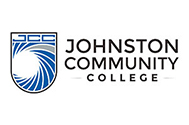 Locations: Smithfield Johnston Community College offers medical assisting education through its diploma and associate degree program. Both these programs combine theory with hands-on training. You can enroll for either the day or evening schedule and also take some classes online. As a result of which, if you plan to work, this flexibility can help you juggle studies with professional responsibilities. Courses are designed to teach you both clerical and clinical skills such as scheduling appointments, coding, and processing, processing insurance, billing, computer operations, patient exam, performing routine diagnostic and lab procedures, and electrocardiography. You also learn about the medical laws and ethics, within the jurisdiction of which you must practice patient care. |
7) Vance-Granville Community College |
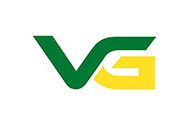 Locations: Louisburg If you are browsing through medical assistant schools in North Carolina, then you shouldn’t overlook Vance-Granville Community College. By completing either its diploma or associate degree you can kick-start a rewarding career in healthcare. For potential students currently in high school, the college recommends completing courses in biology, algebra, and keyboarding as a preparation for the coursework. Upon acceptance into the diploma program, the core medical assisting courses you take teach you administrative duties such as scheduling patient appointments, accounts and billing, processing insurance forms and computer applications. The clinical courses teach you lab procedures, electrocardiography, administration of medications and injections, and ethical and legal issues of patient care. While upon finishing the diploma, some graduates directly go on to work as medical assistants, others prefer continuing to complete the additional coursework to earn an associate degree, which provides a more well-rounded skill set. |
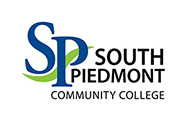 Locations: Polkton, Wadesboro, Monroe As a graduate of South Piedmont Community College, you will demonstrate thoroughness in performing both clerical and clinical functions carried out at a medical office. The 46-credit curriculum requires you to complete 14 credits in general education courses before starting with the 32-credit program-specific coursework. You start the medical assisting coursework with an orientation and progress through the curiculum to take courses in administrative office procedures, followed by courses in infection control, medical law and ethics, medical terminology, symptomology and lab and exam room procedures. The last semester, out of the total three semesters of the program, entails completing an externship, which provides you with the much-needed real-world work experience. For students who are interested in taking up a career as a medical laboratory assistant, SPCC offers a short one-semester certificate course. |
9) Davidson County Community College |
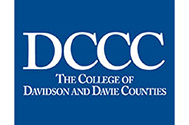 Locations: Lexington To cater to the individual academic needs of its medical assisting students, Davidson County Community College offers three program options – certificate, diploma, and an associate degree. If you are currently in high school, then you can opt for the CCP program which is an 18-credit certificate centered-on the administrative functions. The advantage of this program is the dual enrollment that allows you to take courses while still in high school. To put it simply, in the junior year of high school you take the medical terminology courses, followed by the remaining courses in the senior year. Upon completion of this certificate, you can either start working as a medical assistant or continue courses towards the 43-credit diploma or 64-credit associate degree that prepare you for clerical as well as clinical and lab functions. Alternatively, if you are a high school graduate you can directly opt to enter either for the diploma or associate degree, depending on your career goals. |
 Locations: Grantsboro To enter the exciting healthcare field as a medical assistant, you must be proficient in front as well as back-office functions of a medical office. Pamlico Community College thoroughly prepares you in both these functions through didactic courses and experiential learning. Depending on your career goals, you can opt to complete either the diploma or the associate degree. The diploma is a 45-credit curriculum and includes courses in administrative office procedures, anatomy and physiology, medical terminology, diet and nutrition medical legal issues, patient communication and clinical & lab courses. Whereas, if you desire in-depth education, grounded in liberal arts and medical assisting then the 65-credit associate degree will be a better option. The associate degree aims towards enhancing your communication and critical thinking skills, apart from teaching comprehensive medical assisting skills. Towards the end, both the programs entail completing an externship at a local medical office. |
11) Miller-Motte College |
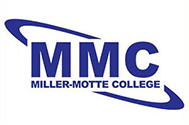 Locations: Fayetteville, Jacksonville, Raleigh, & Wilmington If you are looking at completing a clinical medical assistant program in North Carolina, then you can consider Miller-Motte College’s diploma that is offered at four locations in the state. In a short span of 15 months, the program trains you with the expertise to efficiently fulfill back-office functions at a physician’s office. Students receive extensive hands-on training at the college’s simulation lab where they perfect professional skills on various types of equipment that are currently used in medical offices across the country. The coursework is designed to teach you disease process, prevention and maintenance of health, EHR, patient examination, infection control, patient safety, and AIDS-related precautions. The culminating courses of an externship and medical review further enhance learning and prepare you for success post-graduation. |
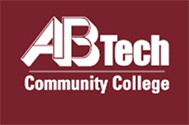 Locations: Asheville As a graduate of Asheville-Buncombe Technical Community College’s associate degree you equip yourself with the knowledge and skills that not only help kick-start a rewarding medical assisting career but also provide a solid foundation for higher education, should you plan a transfer to a four-year college. Medical assistants are increasingly in demand and with the college’s proven track record of success on the national certification exam and placements; you will be rather well-prepared to stay ahead of the competition. Some of the clinical functions covered in the program include recording patient histories, performing venipuncture, preparing lab specimens, electrocardiography, and administration of medications injections. You also learn clerical functions such as maintaining patient records, billing and bookkeeping, managing accounts and filling insurance forms. |
13) Southeastern College |
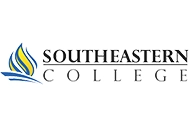 Locations: Charlotte To enter the ever-growing field of allied health, if you are searching for a medical assistant school in Charlotte, Southeastern College can be a good option. The college currently offers a career- centric certificate and an associate degree program. The goal of both the programs is to impart comprehensive skills that are in demand at entry-level positions. While the certificate trains you to work in diverse medical settings such as medical office, nursing homes, and clinics in as little as eight months, the associate degree takes around two years as the curriculum comprises additional medical assisting and general education courses. Both these programs come with a flexible day and evening schedule, allowing working students to continue with their jobs while attending classes. This way, you can even pay for your education by learning and earning at the same time |
 Locations: Roxboro Piedmont Community College’s 69-credit associate degree in medical assisting trains you to make a meaningful contribution to the healthcare field. The curriculum is designed in tune with industry trends and includes courses in the front and back-office functions. On a full-time basis, the program usually takes two years to complete. The courses span across four semesters, including a summer session and comprise courses in communication, critical thinking, quantitative literacy, medical terminology, drug therapy, psychology, administrative office procedures, and clinical & lab procedures. After the successful completion of this program, you can take the national certification exam and become a certified medical assistant. |
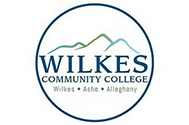 Locations: Wilkesboro By completing Wilkes Community College’s associate degree in medical assisting, you will be adept at assisting a physician during various out-patient medical procedures and simultaneously manage the smooth running of a medical office. This medical assistant program in North Carolina aims at developing professional skills, knowledge, and behavior through rigorous theoretical and practical courses. The curriculum includes courses in basic anatomy & physiology, medical law and ethics, medical terminology, psychology, pharmacology, medical insurance & coding and administrative office, lab and exam room procedures. Upon graduation, you will be eligible to take the national certification exam and become a certified professional. Should you plan on completing your bachelor’s, this program allows transfer of credits towards a BS in healthcare from UNC-Greensboro. |
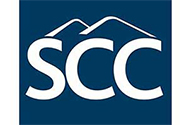 Locations: Sylva At Southwestern Community College you can complete your medical assisting education by enrolling in either the 13-credit certificate course or the 70-credit associate degree program. While the certificate is the shortest route you can take to become a medical assistant, the program, through classroom and laboratory training focuses only on the administrative skills and does not make you eligible for the CMA exam. Contrarily, the associate degree program offers a comprehensive coursework, covering both administrative & clinical functions and also includes a clinical practicum at a local medical office. Upon completing the degree, you will be eligible to take the certification exam and work in all types of medical settings. For students who like the distance format of study, the certificate offers a 100% online coursework, whereas the associate degree delivers almost half of its courses through the web. |
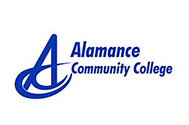 Locations: Graham If you are seeking comprehensive medical assisting education that covers a broad spectrum of courses, then Alamance Community College’s associate degree program can be given a thought. The coursework comprises of 61 credits and can be completed in five semesters, if taken on a full-time basis. If you like flexibility, then you can opt for the part-time evening schedule that runs longer and usually takes 11 semesters to complete. Regardless, of the option you enroll, the coursework is structured in a sequential manner, requiring you to complete courses, semester by semester. The goal of this medical assistant school in North Carolina is to prepare you to excel in the dynamic healthcare industry and thus includes courses in communication, computer, and decision-making skills, apart from medical assisting specific courses. Also, a five-credit practicum where you practice professional skills forms an integral part of your training. |
 Locations: Raleigh Whether you enroll for Wake Technical Community College’s diploma or associate degree, you will graduate as a multi-skilled medical assistant who is ready to work in a variety of healthcare settings. The program starts twice a year, in fall and spring and offers classes only during the day. While the 47-credit diploma includes courses in administrative, clinical and lab procedures, the associate degree further widens your learning curve by including general education courses as well. Regardless, both programs make you eligible for the national certification exam. The college offers financial aid for eligible students of both the programs, so ensure you contact the college to avail of this opportunity. |
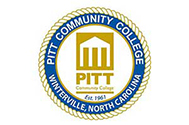 Locations: Greenville Pitt Community College is committed to providing affordable education in medical assisting through a combination of classroom lectures, hands-on lab training, and experiential learning in a real-world setting. This 76-credit associate degree trains you to effectively perform clerical and clinical functions carried out at a medical clinic. The entire coursework is divided into six semesters and also includes a clinical practicum and a medical assisting overview course. While the practicum helps hone your skills in a real-world setting, the overview is a good recap of the entire coursework and works as a preparation course for the national certification exam. |
FAQs Answered
How Many Schools in North Carolina are Currently Offering Medical Assisting Programs?
| 49 |
What are the 5 Best Medical Assistant Programs in North Carolina?
1) Stanly Community College
2) Richmond Community College
3) Gaston College
4) Central Carolina Community College
5) Haywood Community College
Nearby States
Cities
Popular Related Articles
- Medical Assistant Salary – How Much Do They Make in 2025?
- How to Become a Medical Assistant?
- Certified Medical Assistant Exam: In-Depth Information on CMA Exam
- Medical Assistant Job Outlook (Last Updated 2025)
- Medical Assistant Financial Aid and Scholarships
- Skills Necessary to Become a Medical Assistant
- Types of Training and Education for Medical Assistants
